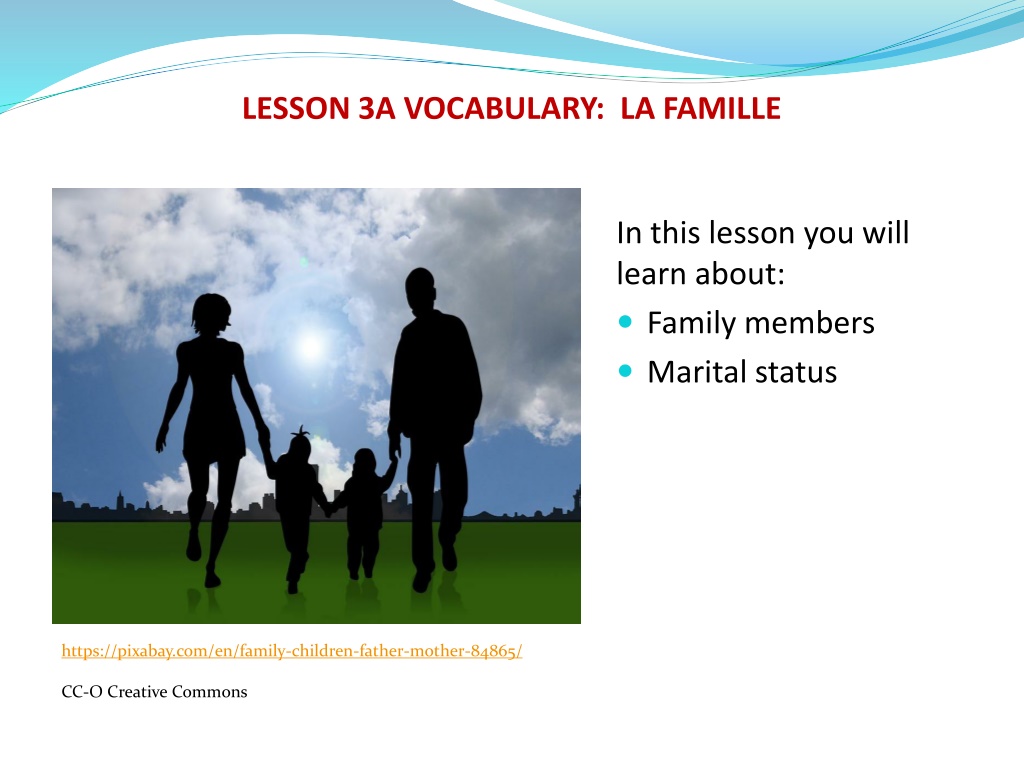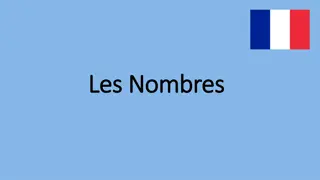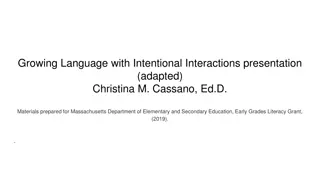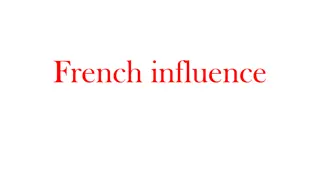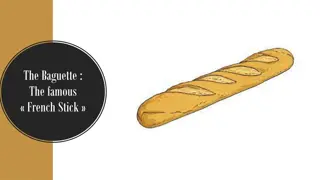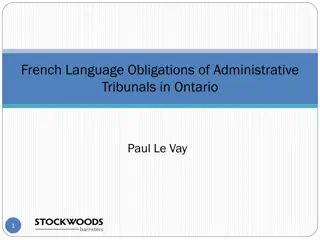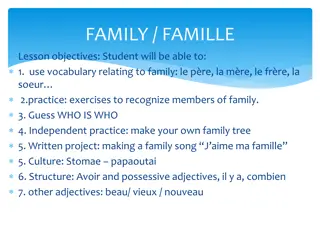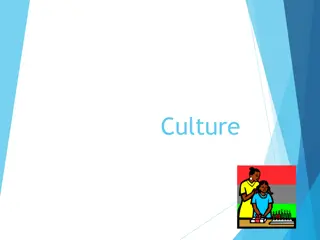Understanding Family Vocabulary and Cultural Aspects in French
Explore vocabulary related to family members and marital status in French, including terms for different relatives and marital statuses. Discover how family structures are evolving in French culture, from extended families to nuclear and non-traditional setups. Dive into the importance of family in French social life and traditions.
Download Presentation

Please find below an Image/Link to download the presentation.
The content on the website is provided AS IS for your information and personal use only. It may not be sold, licensed, or shared on other websites without obtaining consent from the author. Download presentation by click this link. If you encounter any issues during the download, it is possible that the publisher has removed the file from their server.
E N D
Presentation Transcript
LESSON 3A VOCABULARY: LA FAMILLE In this lesson you will learn about: Family members Marital status https://pixabay.com/en/family-children-father-mother-84865/ CC-O Creative Commons
OVERVIEW Notice the feminine form of some nouns: beau-p re/ belle-m re. (father-in-law/mother-in-law) veuf/ veuve (widower/widow) cadet/ cadette ( younger male relative, younger female...) poux/ pouse (husband/wife) Also: les Enfants (children) refers either to male or female children or both. The same is valid for Les cousins (cousins) and Les petits-enfants (the grandchildren)
Overview Family terms with hyphenated adjectives such as beau, grand and petit must agree in gender: beau-fr re (brother-in-law)/ belle-soeur (sister-in-law) petit-fils (male grandchild)/ petite-fille (female grandchild) Exceptions: grand-m re (grandmother) and demi-soeur (step-sister) (It should be, according to the rules, grande-m re and demie soeur, however this is incorrect) Masculine forms: grand-p re, demi-fr re Reminder: Many adjectives follow the standard gender formation: If the adjective ends on e, you add another e to form the feminine. divorc / divorc e (divorced) s par / s par e (separated)
CULTURE: THE FRENCH FAMILY The concept of family is changing in France. In the past, extended families (grandparents, parents and children) often lived in the same dwelling. Today, fewer grandparents live with their children, and the number of traditional nuclear families (mother, father and children) as well as non- traditional families is increasing. In spite of these changes, family life is still an important social institution in French culture. Most holidays are spent with family, and students often choose a university near their home so that they can spend the weekends with their family. CC-BY Roger Celis
